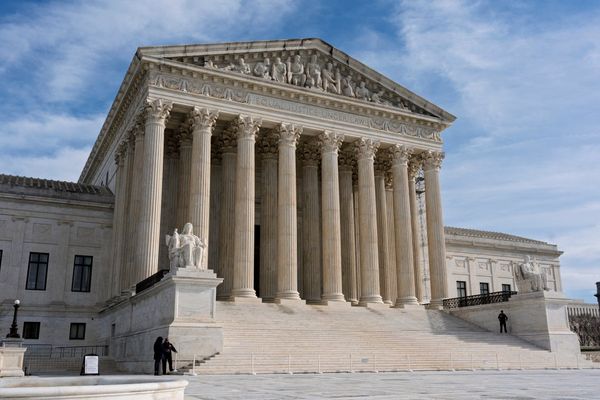The consumer price index came in hotter than expected in January, as both the CPI inflation rate and the core rate, excluding food and energy, hit new 39-year highs. Dow Jones industrial average and Nasdaq losses deepened in Thursday afternoon stock market action as Wall Street priced in additional Fed rate hikes. Meanwhile, the 10-year Treasury yield crested 2% for the first time since August 2019 and kept on rising.
The CPI rose 0.6% from the prior month and 7.5% vs. a year ago, the biggest annual gain since February 1982, the Labor Department said. The core CPI, which strips out volatile food and energy categories, also rose 0.6% from December, while the annual core inflation rate rose to 6%.
Wall Street economists expected a 0.5% monthly rise for both the overall and core rate. The overall CPI inflation rate was expected to rise to 7.3%, with the core rate reaching 5.9%.
Supply constraints and high demand, fueled by vaccines and and fiscal stimulus, have combined to stir up the biggest broad-based inflation rise in a generation. Industries that have struggled to keep up with demand and facing increases in their own input costs, including labor and transportation costs, continue to pass along price hikes.
Amid the fastest wage growth in decades, higher energy costs and rising rent, the Federal Reserve now expects the inflation rate to remain elevated well into 2022.
Most economists have been looking for inflation pressures to begin easing from current levels in coming months as softer seasonal demand over the winter takes some pressure off of supply chains. Yet Thursday's CPI data reduced optimism that inflation will wane quickly.
"The nature of the CPI beat, focused in persistent services items," such as rent and medical care, may mean that inflation pressures won't wane sufficiently for the Fed to let down its guard any time soon, Deutsche Bank chief U.S. economist Matthew Luzzetti wrote.
Deutsche Bank now expects a half-point rate hike in March, which would be the first such hike since 2000. The firm now expects the Fed's benchmark rate to rise 1.75 points this year to a range of 1.75%-2%. That's an extra 50 basis points of hikes compared to what Deutsche Bank expected before the CPI report.
Jobless Claims Fall
Yet with the labor market regaining momentum and even Democratic states ditching mask mandates, the economy appears to be reaccelerating.
The Labor Department on Thursday also reported that new claims for jobless benefits fell to 223,000 in the week through Feb. 5, continuing to recede after last month's omicron-related jump.
Average hourly earnings are up a strong 5.7% from a year ago as the job market has tightened, Labor Department data shows. But real, or inflation-adjusted, wages still aren't close to keeping up with inflation, falling 1.7% from a year ago.
The Fed wants to minimize the risk that inflation pressures will become entrenched as household cost pressures push employees to demand higher wages, leading to more price increases.
Dow Jones, Treasury Yields Reaction To CPI Report
The Dow Jones tumbled 1.5%, the S&P 500 1.8% and the Nasdaq composite 2.1%.
The Dow Jones, like the other major indexes, has come under pressure this year as higher Treasury yields have pinched stock valuations, with tech stocks bearing the brunt. Yet the major stock indexes have reached key levels, right near — and in some cases just above — their highs in the rally from the Jan. 24 bottom.
As of Wednesday's close, the Dow was off just 1.6% year-to-date. The S&P 500 has slipped 3.8% this year, while the Nasdaq composite is off 7.4%.
Be sure to read IBD's The Big Picture column after each trading day to get the latest on the stock market trend and what it means for your trading decisions.
After the CPI report, the 10-year Treasury yield was up 13 basis points to 2.03%, a new Covid-era high. The two-year yield leapt 26 basis points to 1.61%.
Fed rate hikes are slated to start in March. After the CPI report, market pricing indicated a near-certainty of a 50-basis point hike at the March 15-16 Fed meeting, according to the CME Group's FedWatch tool.
Wall Street is now pricing in the equivalent of six quarter-point Fed rate hikes this year. The Fed is also expected to begin shrinking its bloated balance sheet in June or July, as it tightens policy with both fists, contributing to higher Treasury yields.
CPI Inflation Report Details
Prices for used cars and trucks rose 1.5% on the month and 40.5% from a year ago.
Demand for used cars has gotten a boost amid the global chip shortage that has snagged production for new autos. Prices for new vehicles were unchanged on the month, while rising 12.2% from a year ago.
Energy prices rose 0.9% on the month and increased 27% from a year ago.
Prices for food away from home rose 0.7% in January vs. December, while rising 6.4% from a year ago. Prices for food consumed at home increased 1% last month and 7.4% from a year ago.
Prices for medical services rose 0.6% on the month, lifting the year-over-year increase to a still-moderate 2.6%.
Meanwhile, shelter prices rose 0.3% in January, as owner's equivalent rent rose 0.4%.







